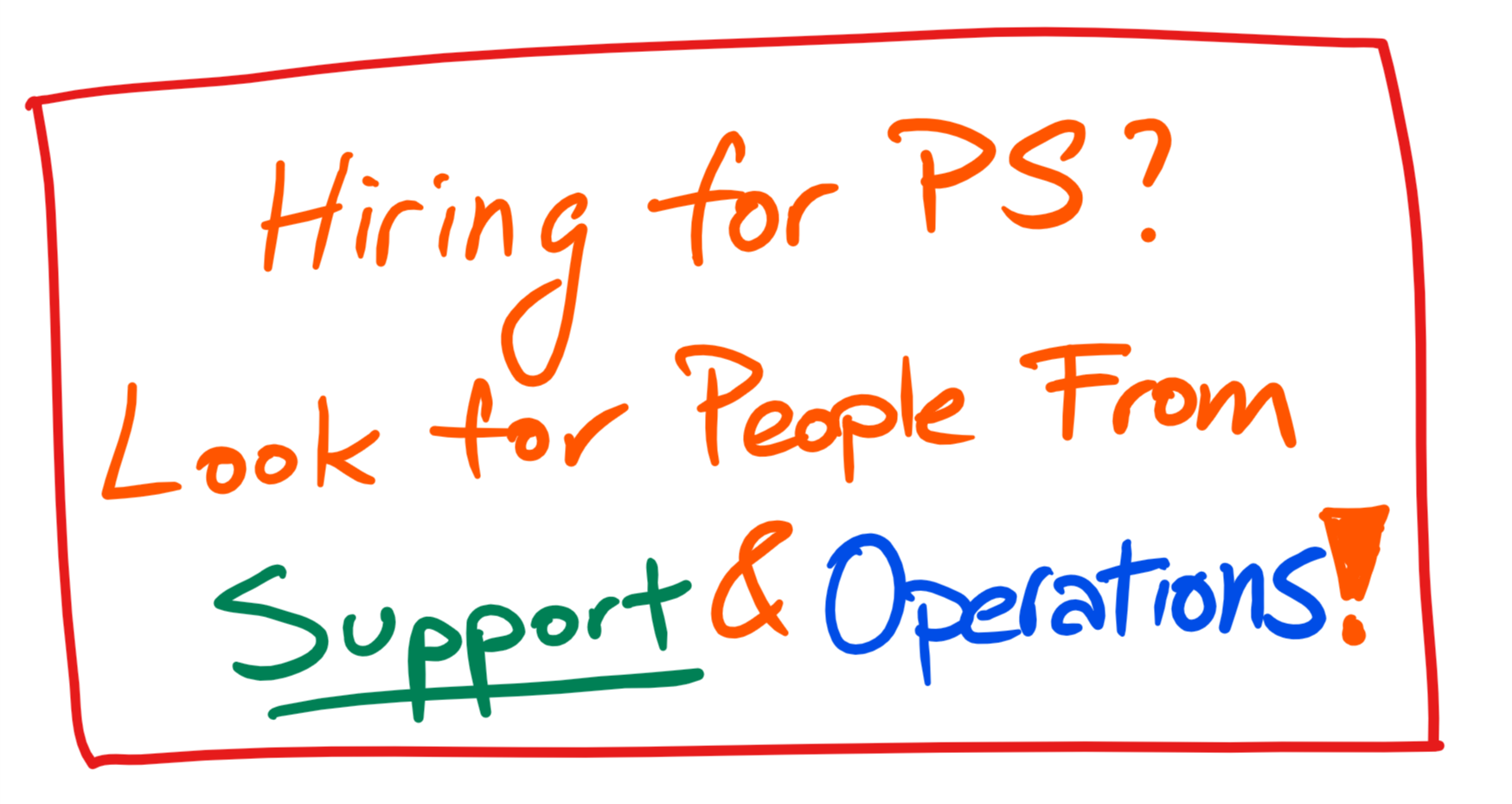It's the dilemma that all "doers" face when they become a leader: What's should I do with my existing client? If you think you can take on a leadership role and keep your entire client at the same time, you're going to yourself doing poorly on both. Read on to find out why it's not fair to your clients, your team, and yourself if you try to take on way too much.
The 4 Ways we Rationalize Putting PS Under Sales... and How to Respond to Them!
When we're asked why we should have PS report to Sales, we try really hard to rationalize that proposition. I've been asked to rationalize moves like this before, but I've always had a hard time trying to stand up for my team. I outline the 4 biggest ways organizations try to rationalize this terrible move, and how in real life they are completely irrational.
Is Your Services Team Reporting Into Sales? Here Are 3 Reasons Why That's a Terrible Idea.
4 Reasons why Support and Operations Folks are Great PS Hires
Hiring into a PS team is hard. Most of the time, we beat our heads at a wall to find candidates that do the same things we do. I've had great success at building PS teams with those from support and operations organizations. Read on to find out my 4 reasons why I think they make great PS colleagues!
Hiring for Professional Services? Look for "Fit and Drive" Instead of Skillsets.
Hiring for Professional Services teams tends to be difficult. We don't seem to find as many professional services candidates to fill our teams. Don't blame a smaller hiring pool of generalists! Start finding great people who share our passion to be great trusted advisors and our drive to learn and grow beyond a single discipline. Read to find out more!
Intense Training is Important for Technical Teams - Here's How to Do It
Teams that compete and win all have one thing in common: They train. They train hard, and they train often. So, why should our team be any different? Read on to find out how intense team training focusing on developing and improving our synaptic responses can be a great way to spread knowledge and build confidence amongst ourselves and our clients.
What is Pattern Recognition and Why You Should Do it More Often
Why is pattern recognition important for services teams? How does our pattern recognition help our organization figure out anticipatory problems? Where do we get started? We dive into the 3-step process on how professional services teams can take our learnings, make it relevant, and affect positive change for our clients.
3 Reasons Why PS Team Cohesion is Important, and 4 Ways to Build it Up
A PS team can be greater than the sum of its parts! Building and growing a cohesive PS team takes effort and hard work, but there are 3 really good reasons to do it: it promotes learning, allows for greater pattern recognition of problems, and encourages adherence to standards. Learn how to help build a cohesive PS team with 4 simple tactics!
Measuring the 3 Fundamentals of PS Success
Measuring the success of a professional services team can be nebulous. Resist the urge to take the easy route of tracking dollars or "time spent" alone! Measure the team based on how they are executing on the three fundamentals of a great professional services team: How well are they diagnosing pain? How objective are they in solving client pain? And finally, how strong are the long-term partnerships we are striving to develop and maintain?

















